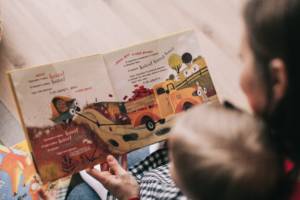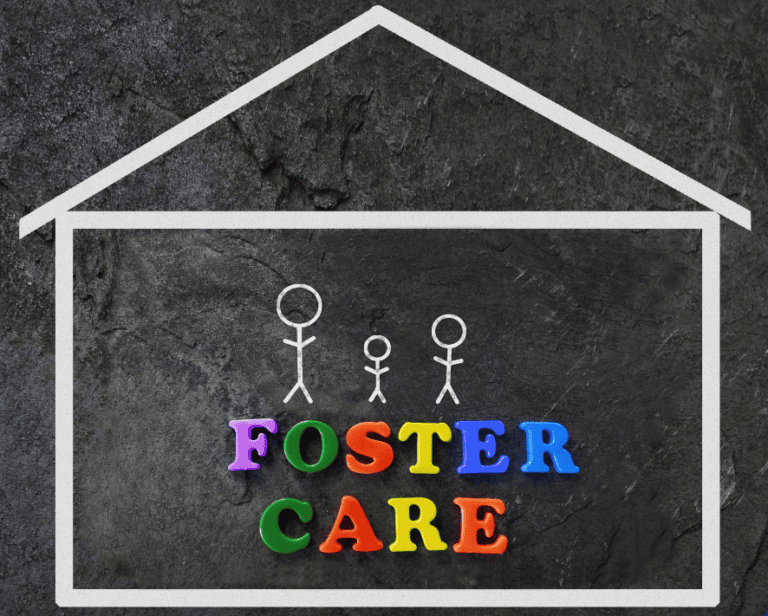If you have a heart for children, especially children, who through not fault of their own, have found themselves in the foster care system, there are so many ways you can help. Even if you aren’t in a position to become a full time foster parent yourself, you can still make a difference.
1. Supply Needs
Bed-In-A-Bag Sets, Pillows, and XL Twin Sheets: Many children come into care with only the clothes they are wearing. There are always needs, here in our residential program, for new bed-in-a-bag sets, pillows, and sheets (twin size, extra long). Each child gets to pick their own bedding from our donated stock, and when they leave our care, their bedding goes with them. We always have children coming in and out of care, so this is always a need.
 Diapers: We always have a need for diapers for our community foster care homes and for our youngest children in our residential programs. We place children from newborn and up, so different sized diapers are always a need and reduce the financial burden on foster families.
Diapers: We always have a need for diapers for our community foster care homes and for our youngest children in our residential programs. We place children from newborn and up, so different sized diapers are always a need and reduce the financial burden on foster families.
Gift Cards for New Admissions: Many of our children come in with very little, and need basic supplies right away. When this happens, we can take them to places like Target or Walmart to get the things they need immediately. Gift cards to these places are always welcome to help offset that expense.
Back-to-School Supplies: Our children in all of our programs (residential care, community care, or in our Day Treatment program) need school supplies each year as they head back to school. Be on the lookout in the summer for our 2020 school supply list.
Christmas Wish Lists: Each year, our children have the opportunity to pick out specific toys, clothes, shoes, and games to go on their Christmas Wish Lists. We put this list out in the late fall for each campus, so be on the lookout for those toward the end of the year.
2. Volunteer
Throughout the year, one or both of our residential campuses may have the need for Cottage Sponsors, Visiting Resources, and Facilities volunteers.
Cottage Sponsors act as the “grandparents” (or cool aunts and uncles!) of the cottages. This can look different based on the cottage’s specific need, but often the Cottage Sponsors visit with the children regularly, form meaningful relationships, help with homework, do crafts, help plan and execute birthday parties, provide a meal, take the cottage on an outing, etc. They provide loving and FUN support to both the children and the parents of the cottage, helping them to know they are loved, supported, and valued.
 Visiting Resources are paired with a child for regular visitations and to form a meaningful bond in the child’s life. You can mentor a child in so many ways – forming meaningful attachments, helping them navigate school and college opportunities, promote healthy decision making, and being a support system through the child’s ups and downs. Sharing your life and providing a positive role model plays a vital part in the development of our children’s lives.
Visiting Resources are paired with a child for regular visitations and to form a meaningful bond in the child’s life. You can mentor a child in so many ways – forming meaningful attachments, helping them navigate school and college opportunities, promote healthy decision making, and being a support system through the child’s ups and downs. Sharing your life and providing a positive role model plays a vital part in the development of our children’s lives.
Facilities and Upkeep: Our campuses are large and there is always work to be done. Anyone can mow or plant or pull weeds. There is often work to be done up on the farm (in Winston) and in our gardens. We can also always use skilled persons to paint walls and doors and to do minor repairs. Many hands make light work, and your hands are always welcome to keep our campuses functional and beautiful.
Special Skills for Summer Enrichment: We offer exciting club and extracurricular opportunities for our children throughout the year and in the summers. If you teach dance, music, science, or martial arts (to name a few!) maybe there is a class or club opportunity you could volunteer to teach. We are always looking for creative ideas for our summer enrichment programs.
3. Become a Gaurdian ad Litem (GAL)
A Guardian ad Litem is a trained and appointed volunteer who advocates for the needs of children in foster care in court. Essentially a GAL can be a voice for the child and fight for the child’s best interest. Becoming a GAL requires an application, a background check, a screening interview, and 30 hours of training. To find out more, visit https://www.nccourts.gov/programs/guardian-ad-litem.
4. Become a Fostering Community
Fostering Communities works to shift the landscape of foster care to include the whole community. We recognize the holistic support of foster parents and the children in their homes leads to healthier and more successful foster care outcomes. If your church has a desire to become a support and advocate for children in foster care, consider becoming a Fostering Community.
As a Fostering Community, your church would band together to help us recruit and train new foster families, provide tangible love and support to those families in your congregation who are currently fostering, and would collectively see foster care as a local mission field.
 Some ways you might help prospective foster families might be providing training space for licensing classes, providing meals for those participating in training, and offering childcare and support services to those pursuing licensure. To support current foster families, churches might host a “shower” for a family accepting a new placement, might provide meals, cleaning, or handyman services for foster families, and help in any way needed as the family adjusts to their new normal. The faith community would also uphold these families in prayer and would emotionally and spiritually support them throughout their fostering journey.
Some ways you might help prospective foster families might be providing training space for licensing classes, providing meals for those participating in training, and offering childcare and support services to those pursuing licensure. To support current foster families, churches might host a “shower” for a family accepting a new placement, might provide meals, cleaning, or handyman services for foster families, and help in any way needed as the family adjusts to their new normal. The faith community would also uphold these families in prayer and would emotionally and spiritually support them throughout their fostering journey.
5. Become a Licensed Respite Caregiver
If you have a heart for becoming a foster carer, but cannot commit to full time foster parenting, you can become licensed for respite care. Respite carers undergo full foster care training and licensure, but commit to part-time care instead of full-time care.
 Sometimes foster parents (as well as the children!) may need a break to reset and get some rest. Other times the family may need to go out of town, and for one reason or another, are unable to take the foster child with them. Maybe a sickness or hospital stay happens, and the children in care need a temporary place to go. When situations like this happen within a traditional family, a babysitter or family member can step in. But since children in foster care often require a licensed care-giver in certain situations, there is a definite need for licensed respite caregivers.
Sometimes foster parents (as well as the children!) may need a break to reset and get some rest. Other times the family may need to go out of town, and for one reason or another, are unable to take the foster child with them. Maybe a sickness or hospital stay happens, and the children in care need a temporary place to go. When situations like this happen within a traditional family, a babysitter or family member can step in. But since children in foster care often require a licensed care-giver in certain situations, there is a definite need for licensed respite caregivers.
AND becoming a respite foster parent is a great stepping stone if you’ve felt the calling to become a foster parent and aren’t sure about a full time commitment just yet.
6. Donate
As you can imagine, providing the high-quality care that children need and deserve is not cheap. At Crossnore, we work hard to provide a true sanctuary of hope and healing to our children. There are significant gaps between what federal and state money will cover and the true cost of the Sanctuary level care we provide our children. That’s why we count on donors to keep our vital work going!
 Become Part of our Circle of Friends: Members of our Circle of Friends sign up to donate monthly to Crossnore. They realize that this promise of hope and healing is worth significant personal investment and commit to ongoing financial support. Circle of Friends members receive a welcome gift, recognition in our annual report, and special perks and invitations to special events throughout the year.
Become Part of our Circle of Friends: Members of our Circle of Friends sign up to donate monthly to Crossnore. They realize that this promise of hope and healing is worth significant personal investment and commit to ongoing financial support. Circle of Friends members receive a welcome gift, recognition in our annual report, and special perks and invitations to special events throughout the year.
Make a General Donation: You can donate to our general fund, where your money will be put to our most immediate needs or specify your donation to something specific, like our scholarship program. For more information on how to donate easily, visit www.crossnore.org/donate-now.
Donate for Spring and Summer Experiences: Our children annually take a Spring Break trip, as well as beach trips during the summer. They may also be interested in going to summer camp or have the opportunity to participate in other special enrichment opportunities when school is out. We LOVE providing our children with special outings and opportunities that ALL CHILDREN deserve to experience. Your donations help make these unique and special events possible.
7. Educate and Advocate
The least we can do for our children is to educate ourselves about foster care and to advocate, not only for children in foster care, but for reforms in a broken system. Read our friend and trainer Shenandoah Chefalo’s book, Garbage Bag Suitcase. And then read another book or blog. And then another.
Call and email your senators to push House Bill 580/Senate Bill 636 that would increase the daily reimbursement rate for foster carers. Currently the reimbursement rate is only $15/day, much less than the true cost of caring for a child. You can read more about that bill and that effort here.
Value ALL children as created beings in God’s image who deserve love, care, stability, and a fighting chance. Pray for them, and pray for those who are working day in and day out to change the future for them.

Lastly, we need to stop repeating false information, stereotypes, and misleadings associated with foster care. Read blogs and stories that deal with the foster care system regularly. Talk to foster parents you know and listen. Learn why it’s hard, why it’s amazing, what works right, and what needs reform. And PRETTY PLEASE, stop repeating that one story of that one time when that one friend (of a friend of a friend) had that one awful experience. That helps no one. We shouldn’t be instilling fear into those who are contemplating this road. We should be encouraging, lifting up, and supporting those who choose this difficult, yet beautiful and oh-so-worth-it journey.
Be a light. Be a help. Be a hope.



